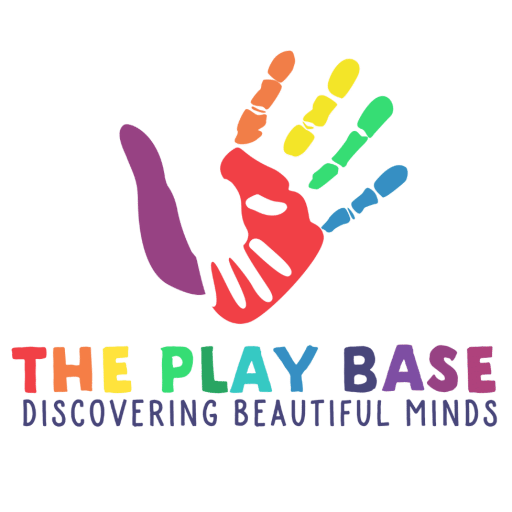Executive functioning skills help children plan, stay focused, switch tasks, and solve problems. These skills make daily life easier, from getting ready in the morning to completing homework. Many children with autism or developmental delays struggle with executive function, which can lead to frustration, overwhelm, or challenging behavior. ABA Therapy is one of the most effective ways to build these skills through simple, step-by-step learning.
Frances Fishman, founder of The Play Base and Board Certified Behaviour Analyst, explains, “Executive functioning skills do not grow on their own. Children need guidance, structure, and repetition. ABA Therapy breaks each skill into small parts so kids can make real, meaningful progress.”
ABA Therapy and Executive Functioning | How Self-Regulation and Problem-Solving Improve Over Time
ABA Therapy uses evidence-based strategies to strengthen skills that support learning and independence. These skills improve slowly and steadily with practice. ABA therapists help kids work through challenges in a supportive and encouraging way.
Children benefit most when sessions include:
• Clear steps
• Visual supports
• Consistent routines
• Immediate feedback
• Opportunities for practice at home and school
These tools help kids understand what is expected, stay focused, and feel confident as they learn new skills.
Building Executive Function with ABA Therapy | Skills That Help Kids Thrive
Executive functioning includes a collection of skills that children use every day. ABA Therapy supports growth in the areas that matter most for real-life success.
Key skills supported in ABA programs include:
• Working memory: remembering steps and instructions
• Planning: understanding how to start and finish a task
• Organization: keeping items and ideas in order
• Task initiation: beginning a task independently
• Persistence: staying with a task even when it feels hard
Frances Fishman adds, “When a child learns even one of these skills, their world opens up. They feel more capable, more connected, and more ready to learn.”
How ABA Strengthens Cognitive Flexibility | Executive Function Strategies That Work
Cognitive flexibility helps children adapt when routines change, plans shift, or unexpected events happen. Many kids with autism struggle with transitions, new situations, or even small adjustments.
ABA Therapy teaches cognitive flexibility through:
• Gradual exposure to change
• Visual schedules with simple modifications
• Practice shifting between activities
• Games that involve turn-taking and switching roles
• Modeling flexible thinking with everyday examples
These strategies help kids feel safe and confident when things don’t go as expected.
Self-Regulation in ABA Therapy | How Behavior Techniques Improve Focus and Control
Self-regulation allows children to manage emotions, calm their bodies, and stay focused. ABA Therapy gives kids tools to recognize how they feel and respond in healthy, productive ways.
Self-regulation support includes:
• Simple breathing exercises
• Break cards
• Calm-down spaces
• Reward systems for staying on track
• Visual cues for emotional awareness
“Self-regulation skills are the foundation for every other skill,” says Frances Fishman. “When a child can manage their feelings, they learn better, play better, and connect better.”
Executive Function Skills in ABA | Helping Children Plan, Organize, and Adapt
ABA Therapy makes planning and organizing easier by teaching children how to break tasks into small steps. This builds independence and reduces frustration at home and school.
Therapists often use:
• Checklists
• Picture schedules
• Step-by-step instructions
• Timers for task completion
• Practice routines during sessions
These tools create structure, helping kids feel successful and prepared.
Problem-Solving Through ABA Therapy | Teaching Kids How to Think, Not Just React
Problem-solving is a core life skill. It helps children handle challenges, big or small. ABA Therapy uses fun, simple activities to help kids think before reacting.
Examples include:
• Puzzles
• Social stories
• Real-life scenarios
• Simple decision-making practice
• Role-play with peers or siblings
With consistent support, children learn to pause, think, and choose better responses.
ABA Techniques That Improve Executive Function | Evidence-Based Approaches Explained
Several ABA techniques support executive functioning in practical, child-friendly ways:
• Prompting: giving clues so the child knows what to do
• Shaping: rewarding small improvements toward a bigger goal
• Reinforcement: encouraging positive behavior with rewards
• Modeling: showing the child exactly what to do
• Task analysis: breaking tasks into tiny, achievable steps
These methods build skills that stay with children for life.
Understanding Executive Function in Autism | ABA Therapy Tools for Everyday Success
Many families first notice executive function challenges in everyday routines. ABA Therapy turns these challenges into learning opportunities.
Support may include:
• Morning and bedtime routines
• Homework planning
• Cleaning up toys
• Following multi-step directions
• Classroom participation
“Parents often tell us they see the biggest changes at home,” shares Frances Fishman. “When a child can follow a routine or shift tasks more easily, family life becomes calmer and happier.”
How ABA Enhances Cognitive Flexibility and Self-Regulation | Expert-Backed Insights
When cognitive flexibility improves, children respond better to change. When self-regulation grows, children feel more in control. ABA Therapy helps strengthen both, leading to smoother days, stronger learning, and better relationships.
Kids gain:
• More confidence
• Greater independence
• Better coping skills
• Stronger communication
• More success at home, school, and in the community
“Building executive functioning skills takes time,” says Frances Fishman, “but the progress is real. Every step forward matters.”
Ready to Support Your Child’s Executive Functioning Skills?
The Play Base offers personalized ABA support for self-regulation, cognitive flexibility, and problem-solving. If you’re ready to help your child grow, book an ABA therapy consultation, request an ABA therapy assessment, or schedule an autism evaluation. Families can enroll in ABA therapy services, access executive function training for kids, and find an ABA clinic near me. Start ABA therapy now and give your child the tools they need to thrive.









